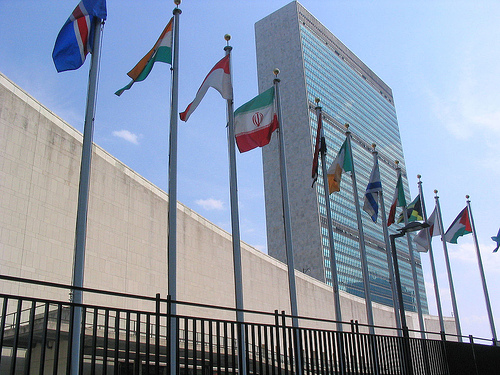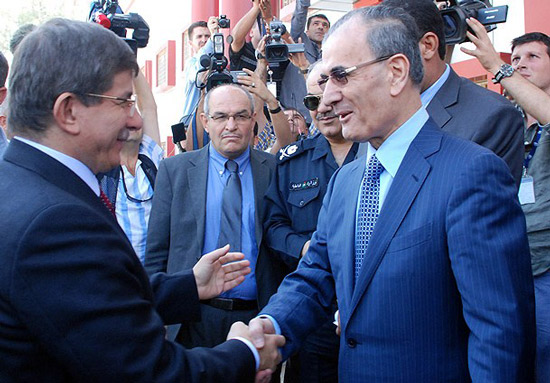Turkey: Oath Crisis in Parliament Partially Over
Turkey’s main opposition Republican People’s Party (CHP) on Monday gave up its two-week-long boycott of Parliament over a court decision to bar its two jailed deputies from taking their seats, and its other deputies took the parliamentary oath, which enables them to officially participate in legislative proceedings. However, the opposition Peace and Democracy Party (BDP) is continuing its boycott.
In a second round of talks held on Monday, representatives from the CHP and the ruling Justice and Development Party (AK Party) agreed on a generally worded statement as a way out of the deadlock. The statement was seen as a “face-saving” measure for the CHP as it failed to secure any promise from the AK Party over possible legislation to adjust the status of the jailed deputies; the statement did not even mention the jailed deputies. Following the announcement of a compromise, CHP leader Kemal Kılıçdaroğlu told reporters in Parliament, “Our [wishes to] respect to the national will have been realized.”
Süheyl Batum, deputy chairman of the CHP, told Today’s Zaman that the statement was satisfactory. He said an action plan by the CHP would follow the statement. The joint declaration underlined that the solution to the issue can be found in Parliament and that all the laws, as well as the Constitution, should be interpreted in a way that broadens individual freedoms. The declaration underscored that the Parliament that was formed after the June 12 elections presents a historic chance for compromise in making a new constitution as it represents almost 95 percent of the electorate. The declaration concludes with the statement that the parties want to see deputies who have not taken their oaths join in and contribute to Parliament’s work.
AK Party parliamentary group deputy chairman Ahmet Aydın, who was among the signatories of the compromise statement, told Today’s Zaman that a proposal for legislative changes was raised at the beginning of negotiations by the CHP delegation, but the CHP did not insist on it. “We said to them: ‘If that happens these negotiations will not go anywhere.
It would have blocked the talks. The CHP agreed. That is why the statement skips mentioning any legislative changes.” The opposition party’s deputies had refused to take their oaths as part of a party decision to protest the imprisonment of two of their deputies as part of a coup plot probe. They had said they would not take the parliamentary oath unless their deputies, who have been prevented from attending the oath-taking ceremony, were allowed to take their oaths as well.
With an initiative by newly elected Parliament Speaker Cemil Çiçek, AK Party parliamentary group deputy chairmen Nurettin Canikli and Aydın and AK Party Deputy Chairman Haluk İpek met with CHP parliamentary group deputy chairman Akif Hamzaçebi and CHP deputies Turgut Dibek and Aydın Ayaydın at 10 a.m. on Monday in a second round of talks that began on Friday to present a solution to the problem.
The CHP’s Hamzaçebi spoke to reporters after Monday’s meeting, which lasted three hours, and said they had prepared a draft declaration and took a break to present the draft to their leaders for approval. The representatives met at 2 p.m. after discussions with their party leaders, and the CHP announced its final decision at a parliamentary group meeting at 2:30 p.m. Parliament convened for talks on the 61st government’s program at 3 p.m. on Monday, and the CHP’s deputies began to take their oaths at the beginning of the session.
Call for BDP to join Parliament
Another opposition party that is boycotting Parliament, the pro-Kurdish Peace and Democracy Party (BDP), complains that they were not included in the talks. BDP parliamentary group deputy chairman Selahattin Demirtaş said on Sunday that his party’s deputies could have taken the parliamentary oath had they been invited to the talks.
Prime Minister Recep Tayyip Erdoğan welcomed the CHP’s decision and called on the BDP deputies to take their seats in Parliament as well. “We were expecting this, and we said the venue for coming up with solutions for all problems is Parliament. The place of the BDP deputies is also in Parliament. They should also come,” he said.
The prime minister also denied Demirtaş’s accusations that the BDP was exposed to “otherification.” “There is no otherification. Their place is also here. I think they should also make a decision and come to Ankara, which is the center of the democratic parliamentarian system,” Erdoğan said.
President Abdullah Gül also expressed hope that the BDP deputies would adopt a stance similar to that of the CHP and take their seats in Parliament. A total of 36 independent deputies supported by the pro-Kurdish BDP were elected in the June 12 elections; however, six BDP-sponsored deputies are currently under arrest as part of the Kurdish Communities Union (KCK) trial. The BDP announced that it would boycott Parliament in protest of the Supreme Election Board’s (YSK) decision to disqualify Hatip Dicle, a jailed KCK suspect. Parliament Speaker Çiçek, the main actor in the efforts to find a solution, also reiterated his call on Monday for the BDP to reverse its decision and come to Parliament. Opposition Nationalist Movement Party (MHP) leader Devlet Bahçeli, who earlier strongly criticized the CHP and the BDP over their boycott, welcomed the CHP’s Monday decision in initial comments on the compromise between the AK Party and the CHP.
11 July 2011
SOURCE: TODAYS ZAMAN




